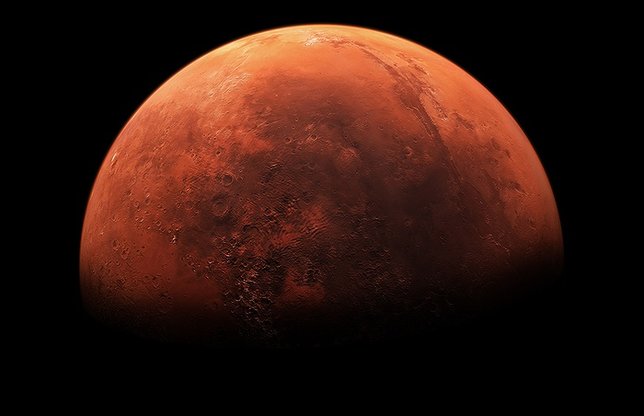Mars is gradually getting closer to Earth as the two planets orbit the sun this month, making the planet visibly brighter as it approaches. It appears as a ruby red star in the eastern sky in the constellation Taurus.
Mars can be seen in the constellation Taurus as it dances between the two stars that make up the bull’s horns (Zeta Tauri and El Nath). According to space.com, Mars will be a few degrees (left) east of the stars on Nov. 1, then align with them on Nov. 13, and by month's end, the red planet will be a half dozen degrees to their west (right).
On November 10th, the moon (waning gibbous) will be accompanied by Mars, shining to its lower left.

Observing the sky on Long Island. Photo: Lon S. Cohen.
Mars reaches opposition (when it is in the exact opposite position in the sky to the Sun from the earth) on December 8 when it will appear the brightest and be only 38.6 million miles from Earth, according to NASA. Over the month of November, Mars will get brighter in the sky as Earth and the red planet close in on each other.
The red planet rises in the Northeast at 6:27pm on November 10th and will be about 20 degrees above the horizon at around 8:30pm. Mars will continue to rise later in the evening every day. On December 8th it will rise at 3:55pm and will be fully visible at around 12 degrees above the horizon by the time the sunsets. Use this handy tool to calculate when Mars (or other planets) will be visible on Long Island.











